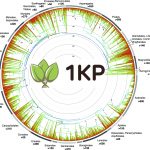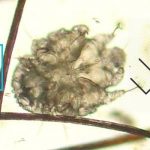Tag Archives: transcriptomics
Continuing Journeys in Space: Human Cell Atlas Asia and Our Spatial Omics Series
Scott Edmunds - November 30, 2024

Human Cell Atlas Asia 2024: A Spatial Omics Odyssey The GigaScience Press Cross Journal (GigaScience and GigaByte) series on “Spatial Omics: Methods and Application” continues to receive and publish submissions. Promoting and providing a home for cutting edge research in new field taking large-scale data-rich biological and biomedical research into new dimensions. This month new […]
Taking Spatial Omics into the Next Dimension
Scott Edmunds - February 20, 2024

A multitude of papers on novel methods for Spatial Omics are published in a cross-journal series launching today in GigaScience and GigaByte Journals. Spatial Omics is a new field that is taking large-scale data-rich biological and biomedical research into new dimensions. Which is having a significant impact on the fundamental fields of biology and biomedicine. […]
Harvesting the final fruits of the plant tree of life
Scott Edmunds - October 24, 2019

Lessons learned in the evolution of large-scale data sharing New studies out today elucidate the framework for 1 billion years of green plant evolution. The work are the results of nearly a decades work from an international consortium of nearly 200 plant researchers generating gene sequences from more than 1100 plant species. Here and in […]
Meet the GigaScience ICG Prize Winner, Pt. 2: Lisa Johnson Q&A
Scott Edmunds - December 14, 2018

Yesterday we published the winning paper of the second GigaScience prize, with additional detail and coverage in GigaBlog describing why we and the judging panel found it so novel. This was an impressively case study in reproducibility, reassembling & reannotating around 700 microbial eukaryotic transcriptomes to demonstrate this approach can aid in revealing new biologically relevant […]
Parasite Protocols Part 2. Author Q&A with François Olivier Hébert
Scott Edmunds - June 7, 2016

Following our “Reproducible Research Resources for Research(ing) Parasites” announcement of a collaboration with protocols.io, we thought we would go into more detail on our first papers integrating their methodologies on this platform. To give some insight into his work, we have one of our author Q&As with first author François Olivier Hébert.
Reproducible Research Resources for Research(ing) Parasites
Scott Edmunds - June 3, 2016

Two new research papers on scabies and tapeworms published today showcase a new collaboration with protocols.io. This demonstrates a new way to share scientific methods that allows scientists to better repeat and build upon these complicated studies on difficult-to-study parasites. It also highlights a new means of writing all research papers with citable methods that can be updated over time.